Prime time News Coverage for north.io's Critical Underwater Infrastructure Project
Kiel, Germany – Protecting critical underwater infrastructure (CUI) remains a significant challenge, not just for Germany but globally. With the...
5 min read
Krueger Jul 24, 2024
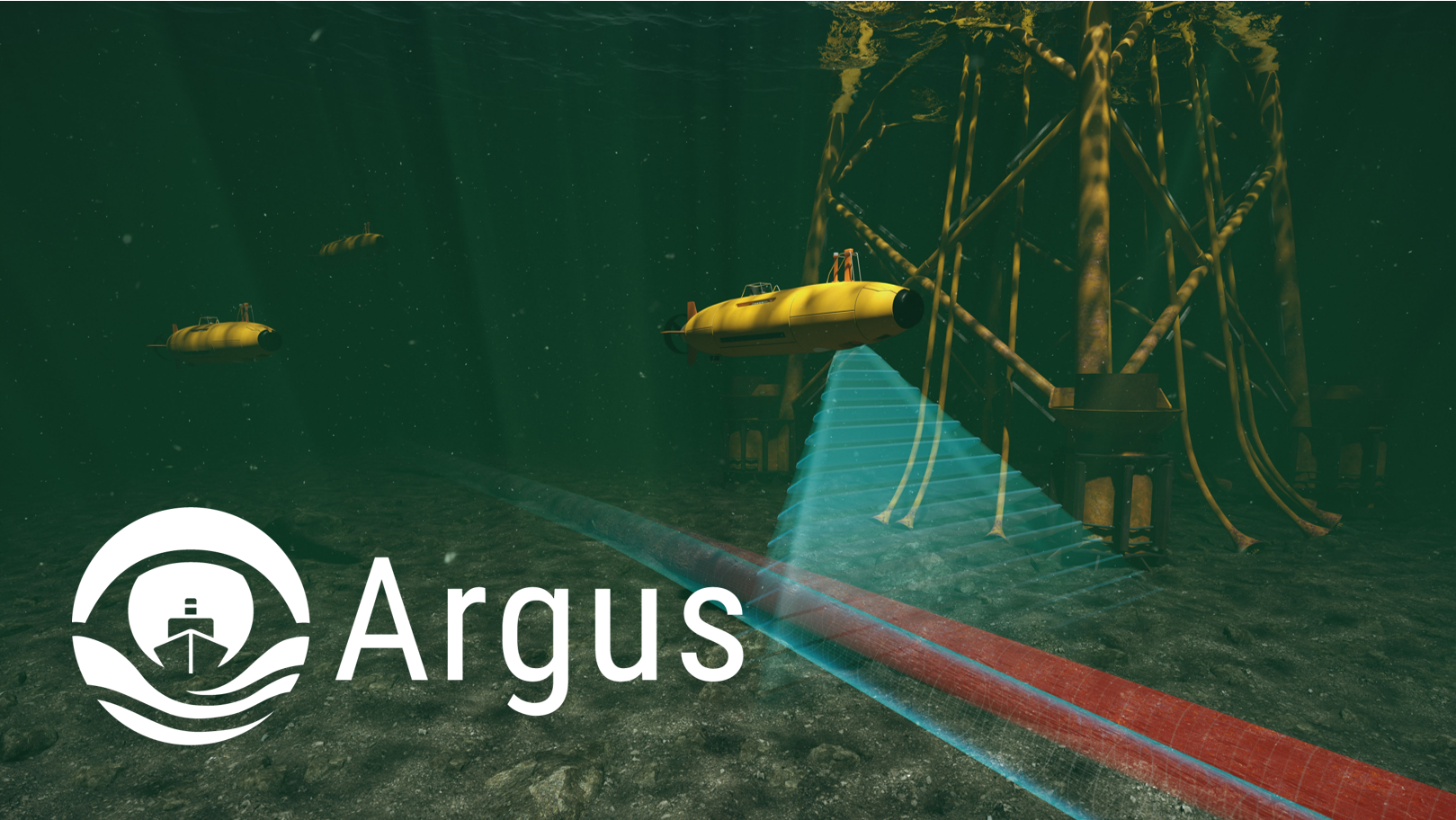
Kiel, Germany – Geospatial cloud specialist north.io has been awarded a €2.4 million grant for the "Argus" project for underwater big data analytics in the context of critical underwater infrastructure, marking the highest single funding the Kiel-based company has ever received. The grant is provided by the Federal Ministry for Digital and Transport (BMDV), as part of the mFUND innovation initiative, contributing to the total project cost of €3.5 million.
In light of recent incidents such as the attacks on the Nord Stream 1 and 2 pipelines, which have highlighted the vulnerability offshore infrastructure, the Federal Minister for Digital and Transport, Dr. Volker Wissing, emphasises the urgency and relevance of the Argus project:
“Protecting critical submarine infrastructure is of crucial importance. Submarine cables and pipelines play an essential role for communication, energy supply and the exchange of digital services. Their security ensures not only uninterrupted essential services, it also protects against potential security threats and economic losses that could result from damage or sabotage. The "Argus" project can make a major contribution to enhancing security. It can detect possible attacks in time by comparing the collected data with the situation under water at the time.”
The protection of critical underwater infrastructure (CUI) is of paramount importance to global security and economic stability. Started on 1 June 2024 and running for two years, Argus aims to revolutionise the protection of CUI through the use of advanced Big Data and AI technologies. The project is led by north.io in collaboration with key partners including the GEOMAR Helmholtz Centre for Ocean Research Kiel and Subsea Europe Services GmbH. The Argus project is further strengthened by the involvement of other key stakeholders, including the Federal Maritime and Hydrographic Agency (BSH), the Federal Police and the German Navy, who will contribute their expertise in maritime operations, law enforcement and hydrographic data to ensure the project's success.
"We are delighted to be leading the Argus project and taking a significant step forward in protecting critical underwater infrastructure. This funding not only recognizes our commitment to innovation, but also shows the need for new approaches in ocean data management and analytics based on AI and Big Data technologies. Our collaboration with highly professional partners will pave the way for groundbreaking advances in maritime safety, environmental protection and the successful expansion of offshore renewables,"
says Jann Wendt (37), CEO of north.io.
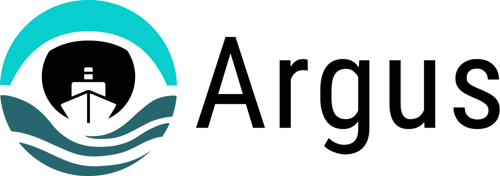
The Argus project addresses the significant challenge of protecting critical underwater infrastructure based on data driven solutions. With the already introduced TrueOcean platform of north.io, the first time an ocean big data technology is available that builds the basis for working and analyzing the tremendous amounts of underwater sensor data provided by e.g. multibeam, side scan sonar or hydrophones. During the Argus project the TrueOcean technology will be significantly enhanced for fighting the lack of highly scalable technological approaches for rapid and systematic inspection of underwater infrastructure. At present, data is gathered and processed by hand, making the process not only time-consuming and inefficient but also incapable of scaling to meet growing demands.
What sets the Argus project apart from other initiatives is its innovative approach to maritime security working specifically with raw ocean sensor data in tremendous amounts. While existing approaches use mainly satellite and AIS data, Argus goes further and fusions underwater data into the situational picture. On the one side it enhances the situational picture with underwater big data from a multitude of sensors, on the other side a system is developed for taking immediate action upon detection:
As soon as potential anomalies are detected near underwater infrastructure, a signal is sent to a pre-positioned autonomous underwater or surface vehicle. This vehicle is then directed by the software to investigate the situation at the critical underwater infrastructure in the most optimized way and provide highest resolution underwater datasets. This unique approach ensures a rapid response to potential threats, significantly enhancing the protection of critical subsea infrastructure.
This proactive and automated response system is a pioneering step in maritime security and demonstrates north.io's commitment to using advanced technology to protect critical assets. The Argus project isn't just about detection, it's about new big data driven approaches and immediate action, setting a new standard in maritime security.
Argus will provide the foundation for automated, data-driven monitoring and threat assessment of CUI. It will integrate a multitude of underwater sensors as well as satellite and vessel positioning data with critical infrastructure locations on a new generation of ocean data management platform. This platform will be a central tool for monitoring anomalies, conducting systematic risk assessments, and strategically inspecting potential threats.
Close collaboration is key in this project and in addressing the challenges in CUI protection.
“The Argus project presents a unique and innovative approach to improving maritime safety. It combines advanced AI technologies with comprehensive data integration. The expertise of the BSH meets technological innovation with the aim of creating a standardised situational picture for authorities and security agencies,"
says Professor Helge Hegewald, President of the Federal Maritime and Hydrographic Agency (BSH).
“We at GEOMAR are proud to contribute our marine data science expertise to the development and training of artificial intelligence for automated analysis and risk assessment of related ship movements in the North and Baltic Seas”,
explains Dr. Timm Schoening, Head of Data Science Unit at GEOMAR. “These Initiatives are crucial to ensure and improve the safety of our underwater infrastructures”, he adds.
Autonomous marine survey expertise is contributed by Subsea Europe Services GmbH.
"As part of the Argus project, our task is to test the already developed track planning software that shows the autonomous systems where to go. Our significant focus on R&D for intelligent uncrewed surface and subsea platforms gives us the perfect technical foundation to deliver a functional, user-friendly prototype,"
explains Sören Themann, CEO, Subsea Europe Services.
"Geospatial and AI experts such as north.io play a central role in the advancement of maritime security," notes Dr Sebastian Bruns from the Institute for Security Policy at the University of Kiel (ISPK).
"Currently, there is no strategy for rapid, systematic inspection of underwater critical infrastructure, with data collection and processing being manual, time-consuming and inefficient. By partnering with organisations like GEOMAR and Subsea Europe Services GmbH, or even the German Navy, they are strengthening Germany’s ability to protect vital assets and ensure future maritime security. By integrating artificial intelligence and big data analytics, Germany's situational awareness and decision-making capabilities will be significantly improved, creating a robust framework for critical infrastructure protection",
Bruns adds.
Key Project Objectives:
Innovative AI-Powered Tools:
The project's first phase involves developing a new generation of an ocean data management platform featuring several AI-powered tools:
Successful Demonstration and Strategic Significance
Initial approaches to risk analysis have been already successfully demonstrated by winning the 2023 DataRun of the Federal Ministry for Digital and Transport of Germany, showcasing the potential of Argus to transform the maritime security domain.
Project Partners and Their Roles
north.io GmbH, based in Kiel, Germany, specializes in the development of complex software solutions for geospatial data processing, AI algorithm development for big data analysis, and data management platforms. With a proven track record in coordinating research projects and a commitment to innovation, north.io is at the forefront of technological advancements in marine security and environmental protection.
For more information, please visit north.io's website
As part of the mFUND innovation initiative, the BMDV has been funding data-based research and development projects for the digital and networked mobility of the future since 2016. The project funding is supplemented by active professional networking between stakeholders from politics, business, administration and research and by the provision of open data on the Mobilithek. Further information can be found at www.mFUND.de.
Dr. Adrian J Neumann / presse@north.io / +49 431 363054-10
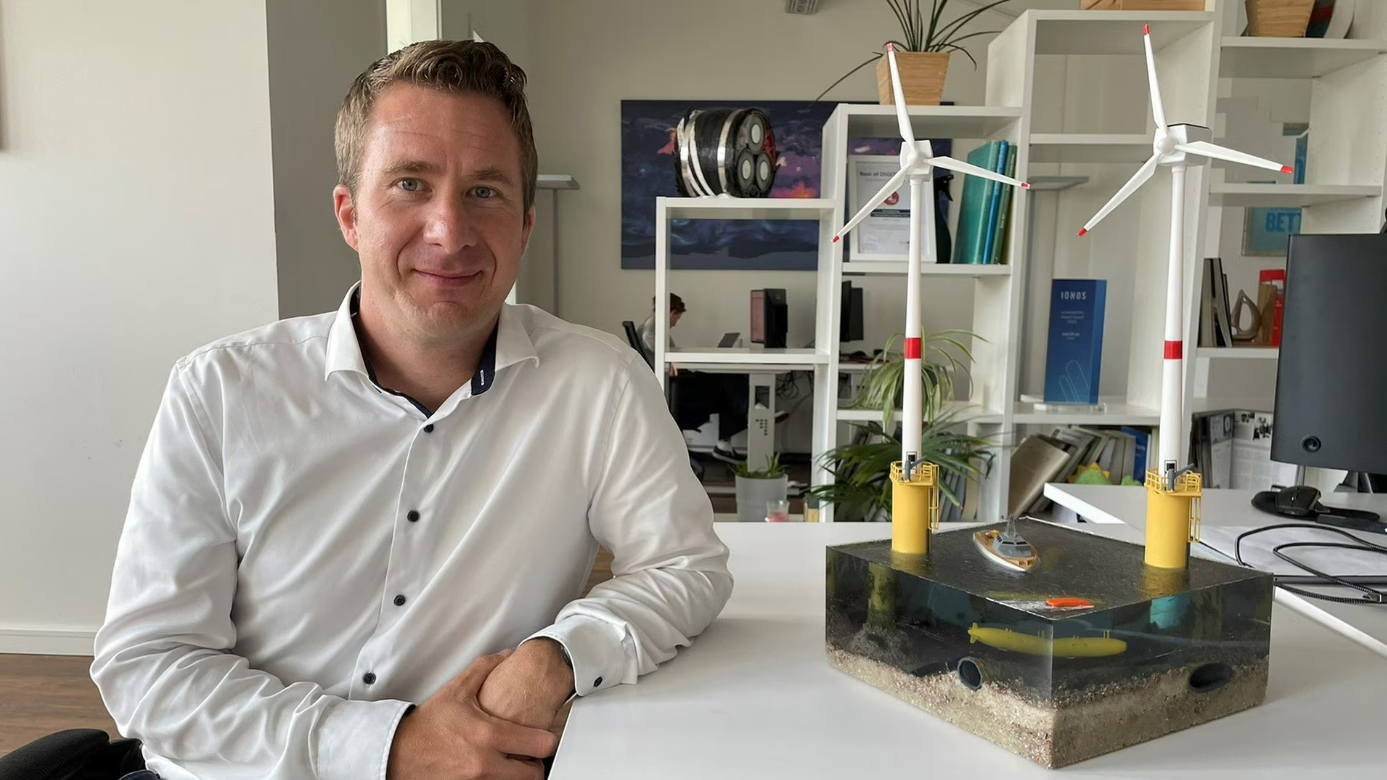
Kiel, Germany – Protecting critical underwater infrastructure (CUI) remains a significant challenge, not just for Germany but globally. With the...
.png)
Lisbon/Kiel. The TrueOcean data platform from German cloud-geospatial-data-specialist north.io has been officially selected to participate in the ...
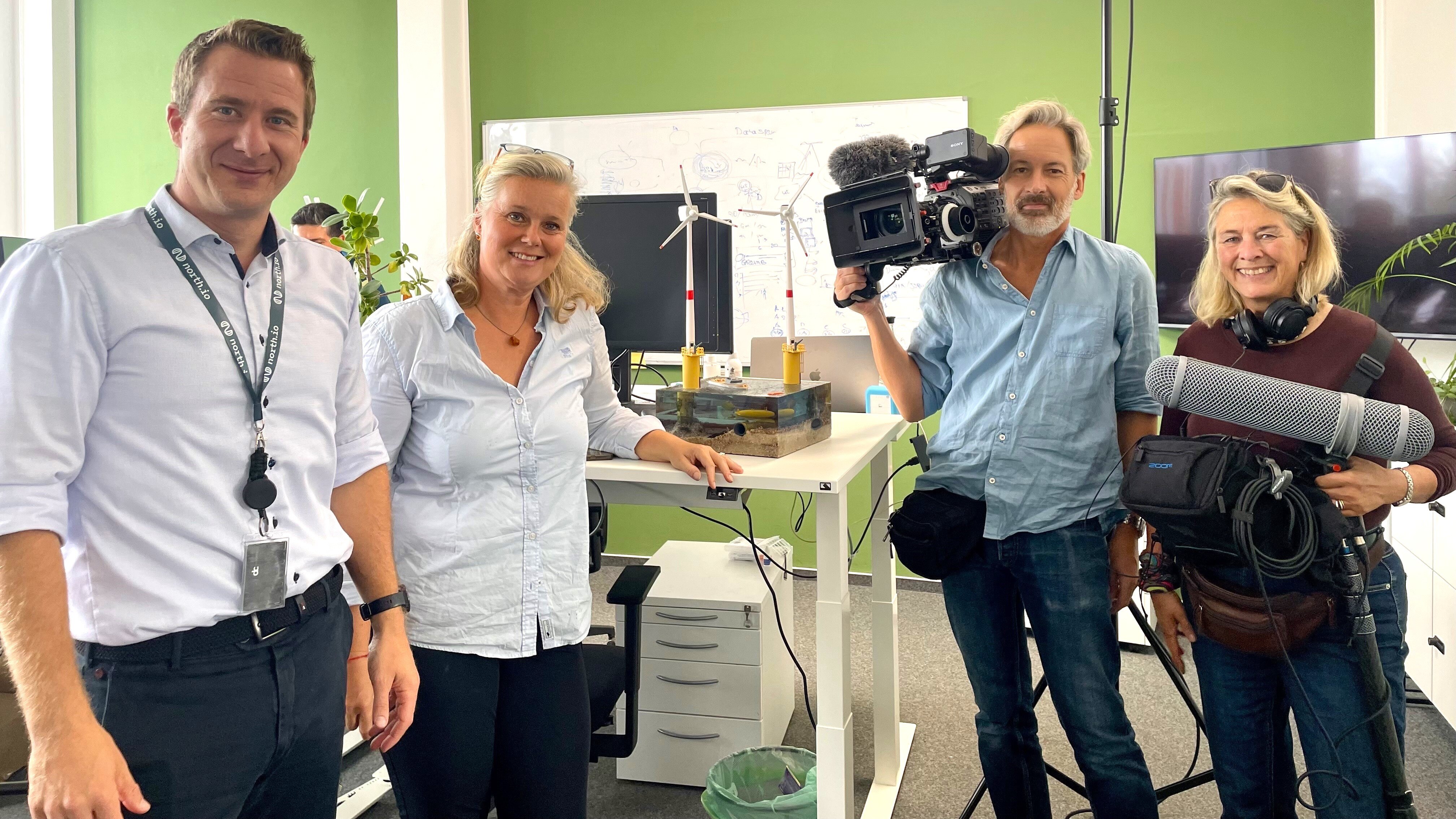
Kiel, Germany. The German-French public broadcaster ARTE recently highlighted the work of north.io in its feature on the Argus project, an initiative...
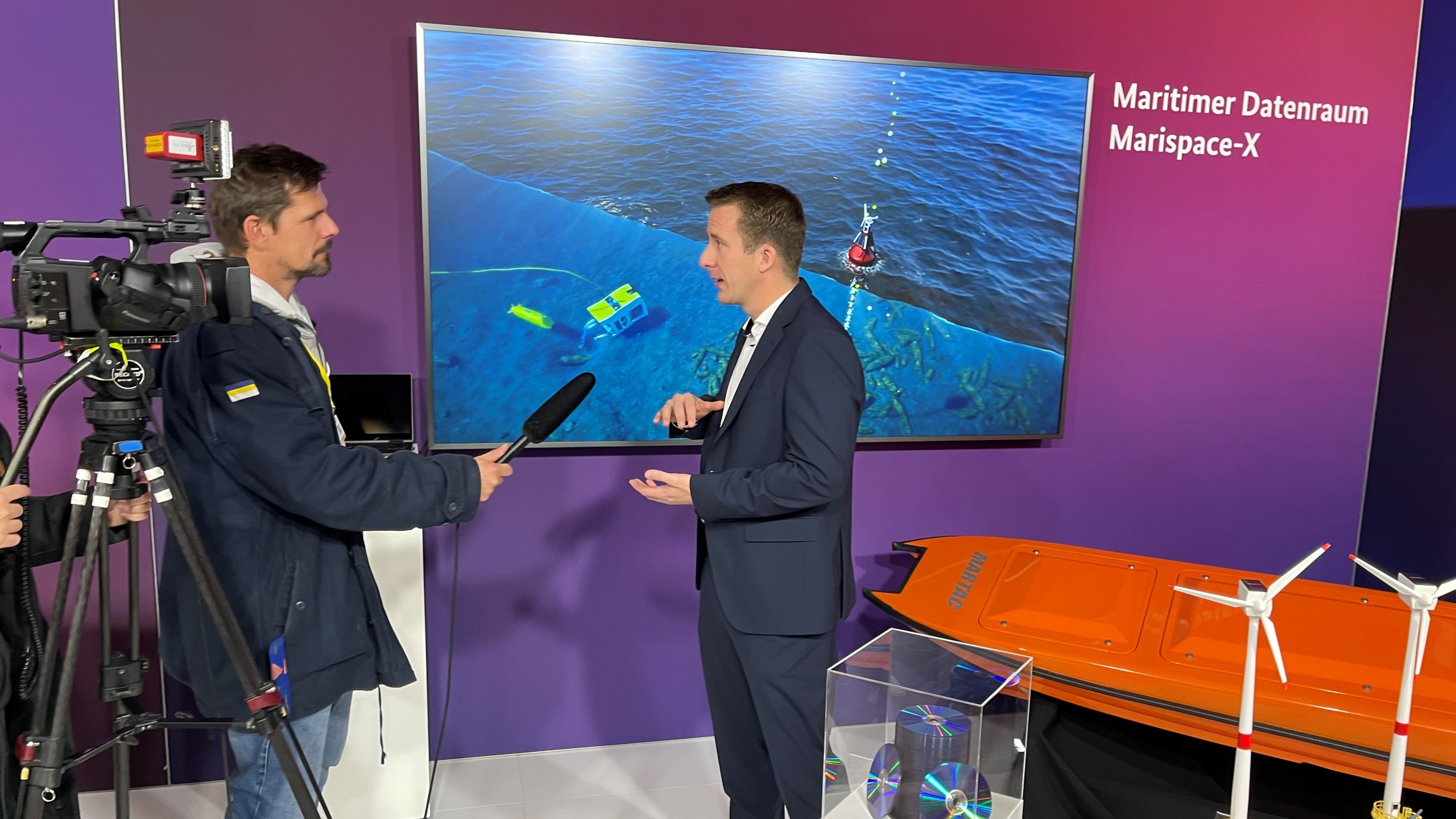
Kiel/Jena, Germany. At the German government's two-day digital summit on 20 and 21 November 2023 in Jena, Jann Wendt, CEO of north.io, will present...